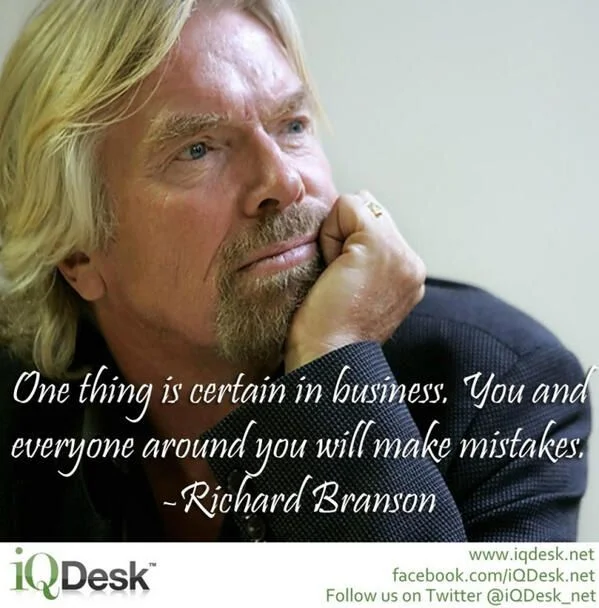The leadership transition at Virgin Atlantic was announced with the requisite corporate smoothness. On October 13, the airline confirmed that Chief Customer and Operating Officer Corneel Koster would succeed Shai Weiss as CEO, effective January 1, 2026. Sir Richard Branson, the company’s founder and enduring public face, issued a statement praising the incoming chief for embodying the "Virgin spirit – bold, curious and ready to shake up the status quo."
It's a familiar narrative. Yet, placing this routine C-suite shuffle alongside a recent, reflective interview with the 75-year-old Branson reveals a fundamental discrepancy between the brand's foundational myth and its current operational reality. The story Virgin tells about itself is one of audacious risk, of learning from spectacular, rabbit-eaten failures. The data points surrounding this CEO appointment, however, suggest a company prioritizing something far less romantic: methodical, predictable execution. The question isn't whether Koster is the right choice, but what his appointment says about the evolution of the "Virgin spirit" itself.
To understand Virgin, you have to understand the stories Branson tells. In a recent interview, he recounted What Richard Branson’s First Investments In Christmas Trees, Parrots Taught Him. The first was a plan to grow and sell Christmas trees with his friend Nik Powell. Their financial model was simple: a £5 bag of seeds would yield 400 trees sold at £2 each, for a projected profit of £795. The venture ended when they returned from school to find rabbits had eaten the seedlings. Undeterred, they pivoted to breeding budgerigars. This, too, ended in failure when, as Branson’s mother later confessed, she grew tired of cleaning the cage and simply let the birds fly away.
These aren't just charming anecdotes; they are the canonical texts of the Branson Doctrine. From these failures, he claims to have learned his most valuable lessons: that risk is essential, that failure is a learning opportunity, and that "patience, persistence and enjoying the ride is what it’s all about." This narrative of the scrappy, well-intentioned amateur who learns by doing has been the central pillar of the Virgin brand for over 50 years. It’s the story that allowed a mail-order record company to plausibly launch an airline, a mobile network, and a space tourism venture.
I've analyzed hundreds of founder narratives, and this pattern of romanticizing early, low-stakes failure is a consistent and effective trope. It humanizes the billionaire, making their success feel accessible and their appetite for risk seem innate rather than calculated. It frames later, more consequential gambles—like selling Virgin Records for $1 billion in 1992 to keep Virgin Atlantic solvent—as extensions of that same plucky spirit. The problem is that a mature, multi-billion-dollar enterprise doesn't run on pluck. It runs on process.

Now, let's look at the data surrounding the new CEO. Corneel Koster is not a disruptive outsider. He's an internal promotion, the COO, a man whose recent career has been defined by stability and execution. The company statement praises him for being "instrumental in running a safe and reliable operation" and delivering "digital operational transformation." His resume includes senior roles at Delta Air Lines, Aeroméxico, and KLM—hardly a collection of scrappy upstarts. This is the background of an operator, a specialist in the complex, high-stakes logistics of moving millions of people through the sky.
The outgoing CEO, Shai Weiss, is lauded for similar achievements: returning the airline to profitability and navigating the brutal landscape of the post-pandemic travel industry. These are the accomplishments of disciplined managers, not swashbuckling entrepreneurs. And this is the part of the story that I find genuinely telling. The language used to describe the airline's leadership is entirely disconnected from the language Branson uses to describe himself.
The airline itself is no longer a lean challenger. It generates $4.4 billion in annual revenue from about 5.6 million passengers—to be more exact, 5.6 million in the last reported year. It's a significant player in the transatlantic market. Crucially, it's also a joint venture. Delta Air Lines, a paragon of corporate aviation, owns a massive stake (a reported 49% holding). An entity like Delta isn't investing in a company for its "challenger spirit"; it's investing for market access, operational synergy, and, ultimately, a return.
Branson’s foundational myth is like the airline’s flashy red livery and stylish crew uniforms. It’s the brand's outward-facing identity, the thing that creates emotional connection and differentiates it in a commoditized industry. Koster's appointment, however, is about reinforcing the landing gear and upgrading the avionics. One is for the marketing department; the other is for ensuring the enterprise doesn't fall out of the sky. There is nothing wrong with this; in fact, it's the only logical path for a company of this scale. The "shaking up the status quo" line from Branson feels less like a strategic directive and more like a contractually obligated brand statement.
What we're observing isn't hypocrisy, but a sophisticated and necessary decoupling of brand narrative from operational strategy. Richard Branson's role is to be the keeper of the flame—the storyteller-in-chief who reminds the world that Virgin is different, that it's born of adventure and daring. His anecdotes about failed bird-breeding schemes are marketing assets, as valuable as any landing slot at Heathrow.
Meanwhile, the actual business of running the airline is handed to seasoned professionals like Corneel Koster, whose primary mandate is not to embody a myth, but to manage risk, optimize routes, and deliver predictable financial results for shareholders, including the very pragmatic operators at Delta. The "Virgin spirit" is now a product to be sold to customers, not a manual for running the company. This isn't a sign of failure; it's the hallmark of a brand that has successfully matured from a founder's personality into a durable corporate entity. The machine is now running itself, and it requires a mechanic, not another dreamer.